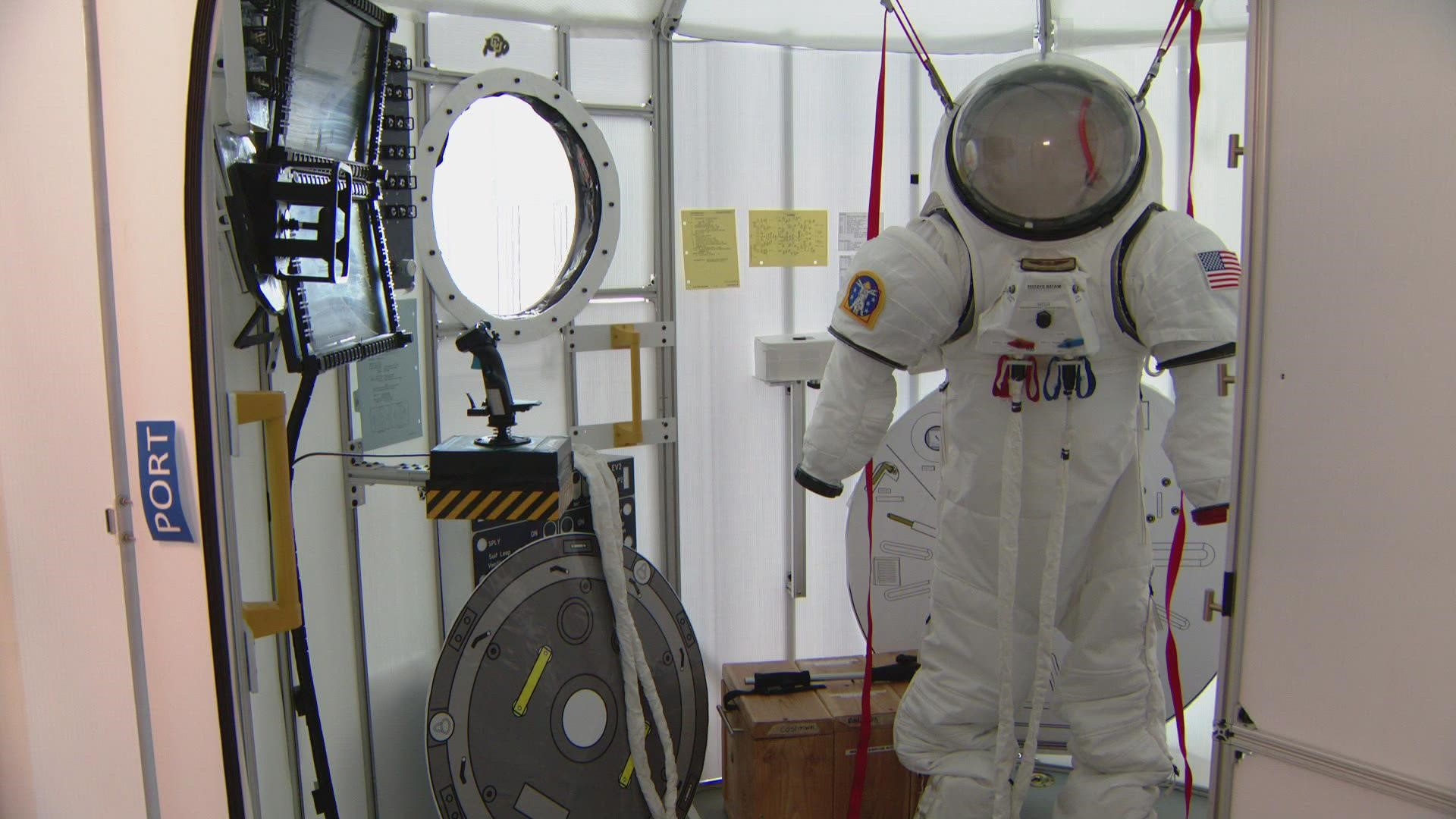BOULDER, Colorado — The students sometimes blow Dr. Arian Anderson's mind.
"They ask such brilliant questions to me that almost break my brain," he said.
It's a good thing they are so sharp. The students are training in two of the most complicated academic fields — and soon, the University of Colorado will have a formal dual degree program to help them create treatments humanity has never before needed.
The joint program between CU's aerospace engineering school and its school of medicine will teach medical students how to work in space.
"The demand for physicians who also, let's say, speak the language of engineering is rapidly growing in demand," Dr. Allie Anderson, an assistant professor of engineering, said.
Astronauts have typically been among the fittest of the fit, but an increase in space tourism means an increase in the number of ordinary folks going to space — and bringing their ordinary medical issues with them, making space medical experts more and more relevant.
"We have always had really healthy individuals who have been sort of intentionally selected to be able to maintain their health in that environment, but we’re going to be really diversifying who we send into space," Allie Anderson said.
In her lab on the CU Boulder campus, she explained the program grew out of a class that takes medical students to rural Utah and simulates medical emergencies on the surface of Mars.
Arian Anderson said space presents unique challenges for doctors, and not just because spending time in zero gravity causes changes in the human body.
"Your resources, your environment, everything is so strange and so foreign and so limited. [Space] has got to be the holy grail of the hardest place to practice medicine," he said.
Extended space voyages also present medical problems. Over the course of years spent away from Earth, the likelihood of an astronaut developing a condition like appendicitis increases.
The "space doctors" who graduate from the CU program may work to examine the risk of an illness, what can be done to lower that risk in space and what tools astronauts may need to take with them to treat the illness should it develop.
"Those questions so far haven't really been answered," Arian Anderson said.
The program is recruiting one or two students to get a joint MD/MS in aerospace engineering with a focus in biospace aeronautics. The students will train as doctors, and then spend time learning engineering.
"We want people who can speak both, who can translate between medicine and aerospace engineering," Arian Anderson said. "I think the students coming out the other side are going to be just brilliant, just scary smart and have all kinds of opportunities."
SUGGESTED VIDEOS: Latest from 9NEWS

